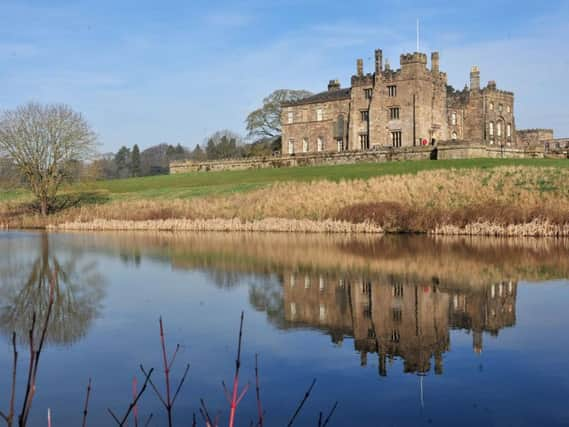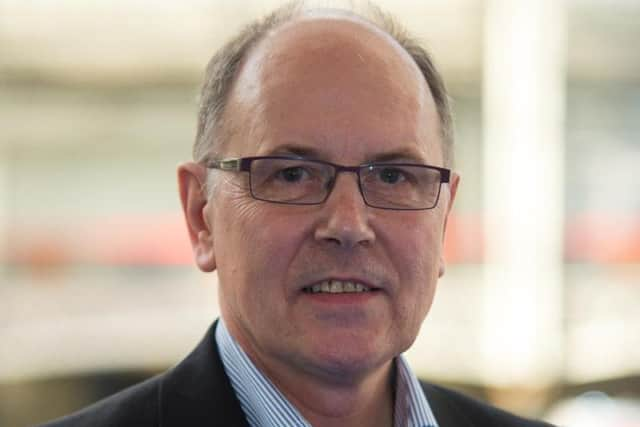Yorkshire farmers who turn to tourism advised to work together
This article contains affiliate links. We may earn a small commission on items purchased through this article, but that does not affect our editorial judgement.


Almost a fifth of UK farmers who took part in a recent survey carried out by rural insurer NFU Mutual said they intended to diversify to protect themselves from post-Brexit changes to support payments.
However, the chairman of the Yorkshire chapter of The Tourism Society, John Gallery, warned that simply diversifying into on-farm holiday accommodation was not necessarily enough to create a reliable and sustainable source of additional income.
Advertisement
Hide AdAdvertisement
Hide AdYork-based Mr Gallery, who acts as a consultant to tourism and hospitality businesses across Yorkshire, said rural tourism can be better harnessed by countryside attractions and accommodation providers – including those based on farms – collectively working together to promote their destination to the public, rather than working in competitive silos.


“Tourism that works well has a strong brand behind it, and that might be created by as few as two or three businesses working together, or 100, depending on the size of the area,” he said.
“Places that don’t have a strong brand suffer compared to those areas that do but like the landscape, it’s a bit patchy in terms of how well rural businesses in Yorkshire are working together to promote themselves.”
The Tourism Society is holding a Rural Tourism Conference at Ripley Castle on Wednesday to inspire countryside businesses about how they can best capitalise on rural tourism.
Advertisement
Hide AdAdvertisement
Hide AdSome 20 million overnight trips and 335 million day trips are taken each year to rural destinations in England but a parliamentary inquiry into the country’s rural tourism two years ago heard that rural businesses were concerned that the benefits of tourism were “accruing disproportionately” in favour of big cities and that more needed to be done to spread visitors and their spend out into rural and coastal areas.
The inquiry heard evidence that a lack of adequate broadband and mobile connectivity, and limitations around the use of brown road signs to direct people to rural attractions, were among the barriers to rural tourism business growth.
Advertisement
Hide AdAdvertisement
Hide AdNonetheless, Mr Gallery believes there are gains to be had by more rural tourism businesses working together to promote their destinations.
“I think we have quite a lot of hidden gems in Yorkshire that people would enjoy if they knew more about them,” he said.
According to the Country Land and Business Association (CLA), tourism continues to be an attractive way of adding value to farm businesses, but the group advised farmers to do their research before taking the plunge.
Dorothy Fairburn, the CLA’s northern director, said: “Tourism is one of the main avenues by which landowners and farmers can diversify their businesses to become more resilient, and Yorkshire presents itself as a top visitor destination with a myriad of additional opportunities yet to be exploited. Any business attempting to pursue this route should assess the viability of such offering against existing supply.”
Advertisement
Hide AdAdvertisement
Hide AdAt the end of June, the Government announced a ‘Tourism Sector Deal’. The-then Business Secretary Greg Clark said this involved a commitment to boost productivity and investment to benefit local economies across the country.
As part of the deal, the Government said it would be introducing new ‘Tourism Zones’ to bring businesses and local organisations together to establish
a “co-ordinated strategy for growth” in their local visitor economy and to increase off-season visits.
Small and medium enterprises (SMEs) in these areas will receive targeted digital skills training and will be offered guidance in management and leadership through a dedicated business programme.
Advertisement
Hide AdAdvertisement
Hide AdThe CLA welcomed this pledge but warned that further investment and support will be needed to truly realise the potential tourism has to boost rural livelihoods.
Miss Fairburn said: “Rural tourism, which is estimated to be worth more than £18.5bn a year, has a huge role to play and realising its additional untapped potential will benefit rural communities immensely.
“However, for rural tourism to remain buoyant now and into the future, it will need access to effective broadband, increased mobile coverage, support in terms of rural development funding and clear guidance on how it will be able to source labour post-Brexit.”